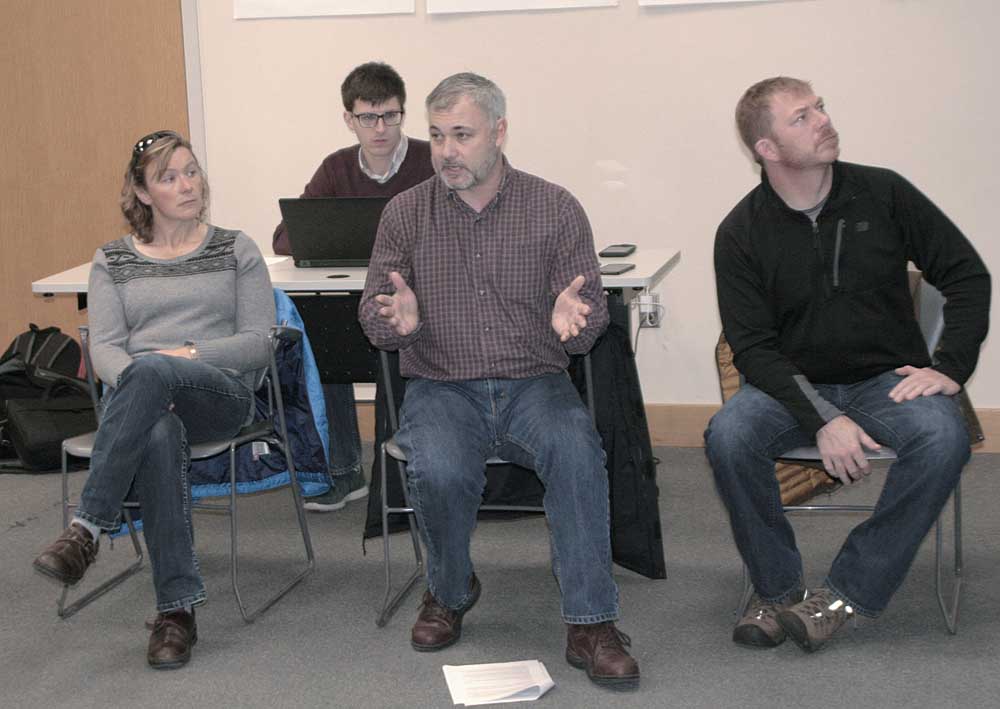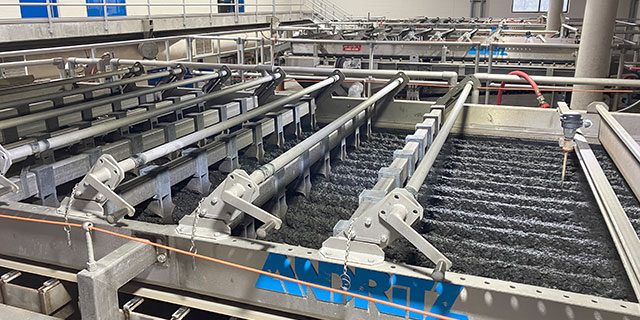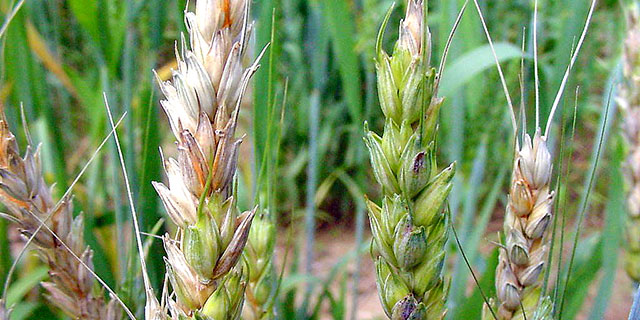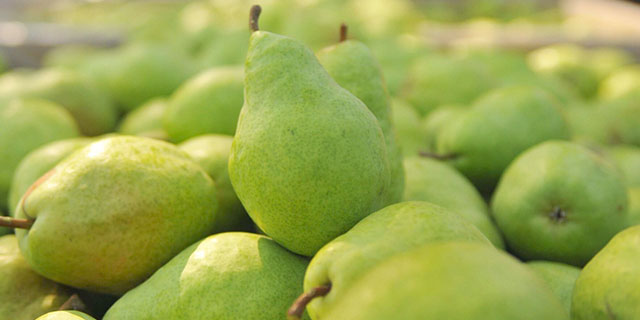Wolf advisory group looks at boosting deer, elk populations
Published 8:01 am Friday, December 21, 2018

- Rancher and wolf advisory group member Molly Linville listens to Washington Department Fish and Wildlife wolf policy lead Donny Martorello talk about language for post-delisting planning as advisory group member Andy Hover looks at a projection of current protocol language Dec. 12 during the wolf advisory group meeting in Spokane.
SPOKANE — Washington’s wolf advisory group will look at increasing the populations of deer and elk to provide the predators with more food and reduce attacks on livestock.
The move is part of the group’s plan to consider how wolves interact on a landscape with deer and elk, other predators and livestock, in the event they are taken off the state’s endangered species list.
The idea is “more of a holistic, predator-prey ecosystem kind of approach,” said Donny Martorello, wolf policy lead for the Washington Department of Fish and Wildlife. “Over the past several years, we’ve had a lot of discussion about wolf-lifestock conflict. That can carry over into our planning for post-delisting. We haven’t had a lot of discussions about wolf-ungulate, predator-prey kinds of things. This is the beginning of that.”
The group took a “deeper dive” into the relationships between wolves and deer and elk during its Dec. 11-12 meeting in Spokane.
“I feel a lot better about the direction this particular meeting took than a lot of the meetings I’ve been at prior,” said group member Andy Hover, who represents hunters on the group. He is also an Okanogan County commissioner and has a ranching background.
If deer and elk populations can increase, Hover said, he hopes it decreases pressure on cattle and grazing.
“I think it’s a step in trying to reduce these conflicts — I’m not saying it’s the end-all, be-all, but it definitely is progress,” he said.
Hover said he’s not sure there will be a difference between last year’s depredations and the season upcoming.
The group will continue to discuss what didn’t work last year and places where response time could have been faster, he said.
Hover would like to figure out other things that the department could have implemented, without putting more pressure on ranchers grazing their cattle.
“I know we’re not getting there fast enough, but I do see some positive steps forward,” he said. “Increasing the ungulate population in general hopefully is going to do everybody good.”






